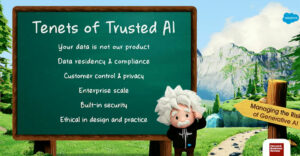
Technology and social media give businesses new ways to interact with customers, to build stronger and longer-lasting relationships, and to create two-way conversations that lead to better products and happier people at both ends of the conversation.
They also allow dumb businesses to expose their incompetence faster and to a wider audience than ever before.
Each year we see it: Companies that miss the mark by applying “worst practices” for social media and social CRM, or businesses that are just plain insensitive to their social media peers.
Once in a while, a case surfaces that can serve as a great object lesson by embodying a laundry list of horrible behaviors in one customer interaction. Also thanks to technology, a vast universe of potential customers gets to hear all about it.
Fined for a Negative Review
Last week, a colleague alerted me to the case of John Palmer, a Utah man who attempted to buy his wife some Christmas gifts from KlearGear.com.
The first fail came when the gifts never arrived. PayPal identified a lack of activity and canceled the payment. The Palmers called the company to find out what happened, only to discover there was no way to talk to a live human at KlearGear. That’s failure No. 2.
A decade ago, that would have been the end, beyond the Palmers telling their immediate friends. Now, social media allows customers to voice their feelings about the treatment they receive. That’s what Jen Palmer did: She wrote a review of the company on ripoffreport.com, a review site, decrying KlearGear’s poor service.
That was 2008. This year, the Palmers received an email from KlearGear with this customer-friendly demand: Remove the negative review within 72 hours or face a US$3,500 fine.
ToS Sleight of Hand
Y’see, the bright bulbs at KlearGear stuck a non-disparagement clause in the Terms of Service language on their site, the kind of text most of us never read but click the box anyway because it’s the only way to continue in our efforts to give someone our money. Specifically, the ToS stated, “Your acceptance of this sales contract prohibits you from taking any action that negatively impacts KlearGear.com.”
According to the Palmers, this nugget was added after their purchase. Regardless of when it was stuck into the ToS verbiage, it’s a ridiculous relic in the social media age — and, really, it’s a stupid thing to assert in any buyer-seller relationship, especially when the business fails to uphold its end of the sales contract. Legal experts have also said that these sort of blanket statements in ToS language are unlikely to survive a legal challenge.
Even so, the Palmers tried to take down the review — and found that ripoffreport.com would require KlearGear to enter into arbitration to have the post removed. KlearGear would have to pay $2,000 for that process, and not surprisingly, KlearGear.com refused.
At this stage, a smart company would just quit. Not KlearGear! As the Palmers were trying to figure out how to comply, KlearGear sent the unpaid $3,500 fine to a collections company, and as a result, when their furnace broke, the couple had trouble getting approved for financing the repairs because the bill in collections drove their credit score down significantly.
Four Strikes
Let’s recap: KlearGear screw-up one: It fails to deliver on its end of a purchase. This is something no amount of CRM is going to remedy; if you can’t deliver when people try to buy from you, you deserve to be out of business.
Screw-up 2: KlearGear reacts to a negative review (which, in the social media era, it really ought to expect) by throwing a snit and digging out a vague passage from the ToS and imposing an arbitrary fine to punish would-be customers for violating a “buying contract.” Since KlearGear didn’t manage to deliver what the Palmers purchased, it’s also in violation of the buying contract, I would assume. But whatever. I’d also suggest that fining a customer for violating terms that weren’t in the ToS when the initial purchase was attempted (and thus were not agreed to) has a whiff of fraud about it.
Screw-up 3: KlearGear provides no way for customers to communicate with it. Phone numbers don’t work, emails go unanswered. In the social media era, this is suicidal.
Screw-up 4: KlearGear responds to its would-have-been customers’ attempts to take down the review (and their attempts to keep KlearGear informed as to what they were doing) by sending their legally dubious fine to collections and damaging their credit.
So, basically, the way KlearGear rewarded the Palmers for trying to give it money was to damage their credit.
An Avenue to Absolute Self-Destruction
Not surprisingly, KlearGear has now crawled into a social media foxhole, closing its Twitter account and shuttering its Facebook page in the face of an outraged social media-enabled public. For an online site, this is akin to a brick-and-mortar store ripping out the phones and hiding employees behind a barricade.
How long will KlearGear survive in this mode? Not long, I presume.
Early in December, advocacy group Public Citizen took up the case and demanded that KlearGear pay the Palmers $75,000 for allegedly filing a false report to credit agencies. In addition to asserting that KlearGear engaged in acts that constitute defamation, intentional interference with economic relations and intentional infliction of emotional distress, Public Citizen pointed out that KlearGear’s refusal to correct the credit information violates the Fair Credit Reporting Act. KlearGear is learning that it is much easier to start a war than it is to end one.
Here’s the bigger lesson from this fiasco: When you get angry at a customer for something they say about you and decide to get even, don’t. That was an idiotic way to conduct business before social media. Today, it’s an avenue to absolute self-destruction. Instead, use the abilities social media provide to engage with customers to solve their problems. You’ll preserve the relationship with those customers, demonstrate to other potential customers you’re responsive and trustworthy even when the fault is yours, and you’ll avoid setting off a chain of events and actions that can doom your business.






















































Nicely put Chris, Kleargear will learn or not only time will tell, but i AM sure we all learned something of this fiasco. Social media has got the king back to the forefront and that is The Customer and you nowhere offend the King or you pay for it.